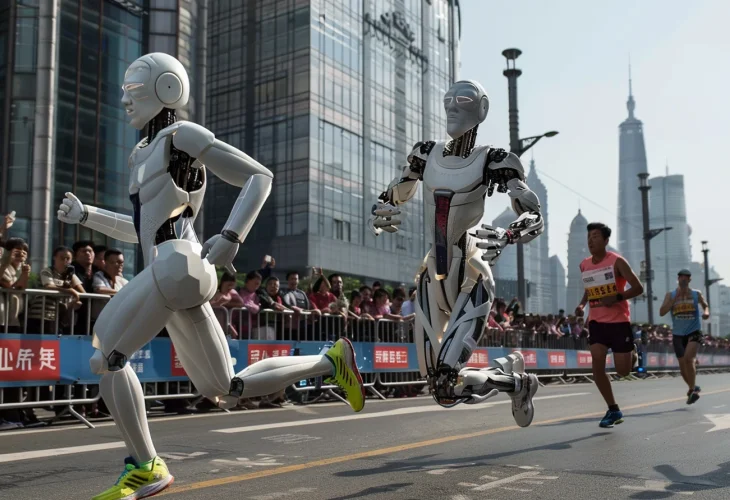Robots Take on Humans in Epic Marathon Face-off: Guess Who Won?
From dramatic falls to unexpected victories, robots took on a new challenge in Beijing's half marathon, opening up questions about AI's future in sports.

Artificial Intelligence is taking over the world, and in China, they've pushed the boundary even further. In a historic first, 21 robots competed alongside thousands of human runners in a half marathon in Beijing. The event, held about two weeks ago, saw the robot "Tiangong Ultra" finish the race in two hours and 40 minutes. Despite technical challenges, including falls and battery changes, the event raises intriguing questions about AI's future.
This was the first time robots participated in a half marathon with human athletes. Standing between 1.15 and 1.75 meters tall, these robots lined up at the start with thousands of humans, equipped with running shoes, headbands, and even boxing gloves. Designed to move without wheels, they operated under remote control or autonomously.
"Tiangong Ultra," developed by the Beijing Innovation Center for Human-like Robotics, completed the race in two hours and 40 minutes, changing its battery only three times "only." According to Tang Jian, the center's technology director, the robot's success was due to its long strides and advanced algorithm mimicking human running motion.
Despite the achievement, not all robots managed to meet the challenge. One fell immediately at the start and lay on the ground for several minutes before continuing, while another collided with a railing, causing its human operator to fall. Human coaches accompanied the robots, some of whom had to physically support them during the race.
The event sparked a crucial discussion: could robots eventually replace humans in racing competitions? While robots remain far from competing against human runners without any human intervention (as humans changed their batteries during the race), it’s exciting to see if advancements might lead them to compete without external help.

